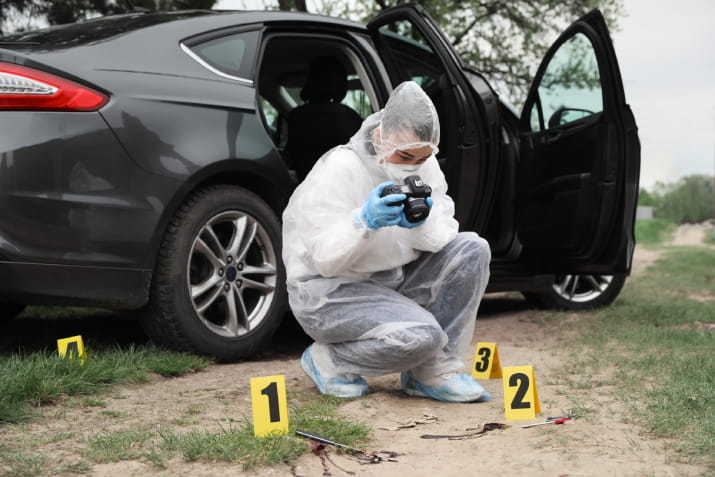Fighting crime one step at a time
Crime is an ever-popular genre, fascinating audiences across film, TV, books and podcasts. But where could a real-life career in criminology take you?

Considering a career in criminology? It can take you to more places than you may have thought, from the digital world, to the local community, to the arts scene.
High-tech world of crime
Around 80 per cent of cybercrimes last year came from organised crime, as traditional criminal enterprises opened up digital divisions of their operations. And it’s big business, with credit card fraud in Australia alone topping $400M last year—doubling in just five years.
The Federal Government recently allocated $230M towards fighting cybercrime, looking at high-tech solutions to combat cyber attacks and fraud, as sophisticated forms of crime come sharply into the focus of law enforcement. Cybercrime is about more than just money—this year has personal data from Medicare for sale on the dark web, and the Wanna Cry ransomware attack that brought many businesses around the world to a standstill.
Studying a course in criminology and criminal justice helps students examine the causes of crime and society’s response to it.This opens up careers in policing and corrections, as well as in the private sector, including investigations and security—Ultimately, this means a potential career change for diverse range of backgrounds, from IT whizzes to bankers and existing workers in security looking to refresh their skills at a time of rapid change.
A community approach
Almost another world away from the high-tech world of cybercrime, in outback NSW, a small juvenile justice program called BackTrack is achieving remarkable results by helping wayward youths reintegrate into society by raising cattle dogs.
Criminal justice isn’t just about catching bad guys—a large component is stopping crime before it occurs in vulnerable people and communities, particularly for those who have already experienced time in the corrections system.
BackTrack was founded by Bernie Shakeshaft, an Jackeroo-turned-social worker who could see that something wasn’t working with indigenous youths in the Armidale community in North West NSW. “School wasn’t working for these kids,” he told The Australian last year. “I thought I’d try something’ different, the opposite of what wasn’t working’.” Of the 400 kids who have completed the program, 85 per cent have gone on to find work, while youth-centric crimes such as break and enter have reduced by 52 per cent in the town.
Unleashing creative skills
Studying criminal justice has other applications outside of working directly with crime. In addition to the many cop-drama television shows and movies, crime writing is the most popular form of fiction today.
Don Winslow, best selling crime fiction author and former private investigator, explained why he has chosen the genre earlier this year. “I think that we, the public, tend to see these things as black and white,” he said. “If we think about them a little more deeply, we see that there’s lots of grey.” He even sold the film rights to his most recent novel, The Force, for a seven figure sum.
They say that everyone has a novel in them, and if yours is about solving a crime, or maybe even getting away with one, taking a unit of study in the most up-to-date criminology methods can provide you with the depth of knowledge and authenticity to help you replicate Winslow and get your idea into print.
Find out more about your options to study in this exciting field with Open Universities Australia by browsing through the full range of law, justice and security courses.
Browse thousands of courses from leading Australian universities.
Or complete the form on this page to chat to an advisor about study options.



